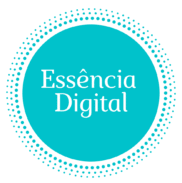The much-anticipated release of OpenAI’s ChatGPT 5.0 in early August 2025 has sent ripples across the tech world and beyond. This new iteration of the groundbreaking language model is not just an incremental update; it represents a significant leap forward in artificial intelligence. It boasts enhanced reasoning, unparalleled coding capabilities, and a more intuitive user experience. For the burgeoning freelance economy, ChatGPT 5.0 is more than a new tool it’s a paradigm shift, empowering independent professionals to augment their skills, streamline their workflows, and unlock unprecedented levels of creativity and efficiency.
For months leading up to its release, the tech community buzzed with speculation. Promises of a model that could reason, create, and collaborate on a near-human level seemed ambitious, but the launch of GPT-5 has largely delivered on that hype. This isn’t merely a more articulate chatbot; it’s a foundational platform that is reshaping the very definition of digital work.
A Quantum Leap in AI Capabilities
The evolution from GPT-4 to GPT-5 is marked by a host of transformative features that directly impact professional workflows. These are not just minor improvements; they are categorical enhancements in how humans interact with artificial intelligence.
Perhaps the most significant advancement is the introduction of a new “Thinking” mode. When activated, the AI engages in a more deliberate and complex reasoning process. It can break down multifaceted problems, weigh potential outcomes, and articulate its thought process, moving beyond simple answers to provide strategic insights. For example, a freelance marketing consultant can now ask it to develop a complete six-month marketing plan for a new e-commerce store with a specific budget, target demographic, and revenue goal, and receive a detailed, week-by-week strategy document in return.
Another game-changer is the vastly improved coding capability, colloquially termed “vibe coding.” Developers and designers are finding they can generate complex, functional, and even stylistically nuanced code from simple, conversational prompts. This not only accelerates the development process but also democratizes it. A graphic designer can now build a functional portfolio website with interactive elements without writing a single line of code, turning a design concept into a digital reality and expanding their service offerings.
Furthermore, OpenAI has made significant strides in addressing the “hallucination” problem. ChatGPT 5.0 exhibits a marked reduction in generating false or misleading information, and it has an improved ability to cite credible sources for its claims. This increased factual consistency makes it a far more reliable tool for research and content creation. For freelance writers, journalists, and consultants, the risk of providing inaccurate information to a client is drastically reduced, building a foundation of trust and professional integrity.
The Freelancer’s New Best Friend: AI in Action
The impact of these advancements is already being felt across the freelance landscape. Solopreneurs and small teams are leveraging ChatGPT 5.0 to compete with larger agencies by delivering superior work faster. Here’s how different professionals are harnessing its power:
- Content Creators and Copywriters: Beyond drafting articles, GPT-5 acts as a strategic SEO partner. It can analyze keywords and generate entire content cluster strategies, suggesting pillar pages and supporting blog posts to help freelancers build topical authority for their clients’ websites.
- Web Developers and Designers: The “vibe coding” feature is a revolution for tech freelancers. It’s not just for generating new code; it’s an incredibly powerful debugging tool. Developers can paste entire problematic code blocks and ask the AI to identify bugs, suggest optimizations, and explain the errors, saving hours of frustration.
- Virtual Assistants and Project Managers: With enhanced integration into tools like Gmail and Google Calendar, VAs are moving from administrative support to operational management. They can now create “AI agents” that autonomously handle client onboarding, manage project timelines, and even draft weekly progress reports, allowing them to offer higher-value strategic services.
- Consultants and Analysts: The “Thinking” mode is a powerful ally. A financial consultant can use it to model complex investment scenarios based on a client’s risk tolerance, while a business strategist can simulate market reactions to a new product launch. This provides a level of data-driven foresight previously reserved for large corporate firms.
Navigating the New Frontier: Challenges and Opportunities
The rise of powerful AI like ChatGPT 5.0 is not without its challenges. There are valid concerns about the commoditization of certain skills. If anyone can generate a decent article or a basic website, the market value of those entry-level tasks may decrease. This creates pressure on freelancers to move up the value chain.
Ethical considerations also come to the forefront. Freelancers must be transparent with clients about their use of AI, especially when handling sensitive or proprietary information. Understanding the nuances of data privacy and avoiding inherent biases within the AI’s output are becoming critical professional skills.
However, the opportunities far outweigh the challenges for those willing to adapt. The prevailing sentiment among forward-thinking freelancers is one of optimism. AI is not a replacement; it is a collaborator. It is a tool that augments human intellect, freeing professionals from mundane execution to focus on the uniquely human aspects of their work: strategic thinking, creativity, client relationships, and emotional intelligence.
As we stand at the dawn of this new era, the possibilities seem limitless. ChatGPT 5.0 is not just a technological marvel; it’s a catalyst for a more empowered, efficient, and creative freelance economy. The freelancers who learn to harness its power will not only survive but thrive in the ever-evolving landscape of modern work.
The Future-Proof Freelancer: An Action Plan for Adaptation
To succeed in this new AI-powered landscape, freelancers must be proactive. Simply using the tool is not enough; integrating it into a new way of working is essential. Here are key strategies for future-proofing your freelance career:
- Become a Master of Prompting: Your value will increasingly be determined by your ability to ask the right questions. Learning how to craft detailed, context-rich prompts that guide the AI toward a superior output is the new critical skill.
- Focus on Strategy and Curation: Let the AI handle the first draft or the initial data crunch. Your role is to be the strategist, the editor, and the curator who refines the AI’s output, adds human insight, and ensures it aligns perfectly with client goals.
- Double Down on Soft Skills: As technical execution becomes easier, skills like communication, empathy, negotiation, and creative problem-solving become more valuable than ever. These are the areas where humans still hold a decisive edge.
- Develop “AI-Adjacent” Services: Consider offering new services like “AI workflow integration” for small businesses, “custom AI prompt libraries” for specific industries, or “AI content strategy” consulting.
Watch: AI’s Impact on the Global Workforce
In this OpenAI demo, GPT-5 transforms messy customer feedback from a fictional company into a functional travel app prototype in minutes.
.

